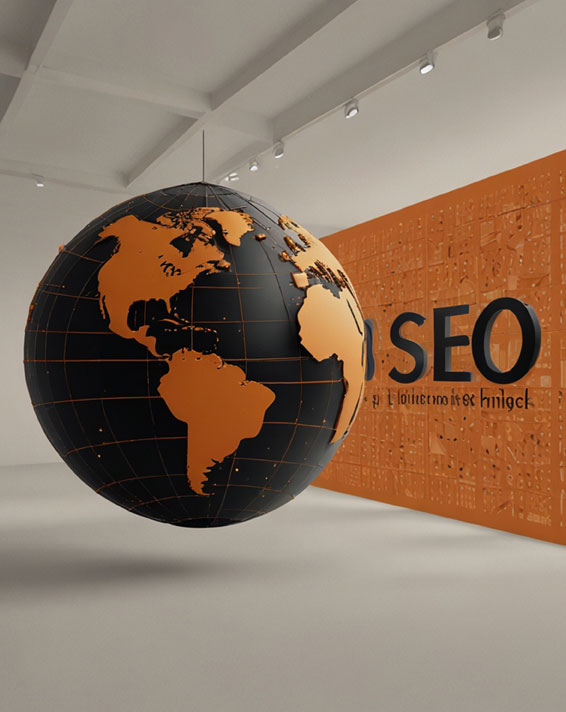Expand your business globally with international SEO strategies tailored to diverse markets. Utah Digital Marketing Experts optimizes your website for global audiences, ensuring higher rankings and localized content for international search engines. Reach new markets with ease.








Successfully navigating international SEO requires a comprehensive strategy that accounts for the unique challenges of global markets. A successful approach involves not only technical SEO adjustments but also a keen understanding of local cultures, languages, and user preferences. To optimize your site for global reach, it’s important to implement strategies that address specific regions, search engines, and audience behaviors. These strategies will guide you through the complexities of optimizing your website for international audiences.
An effective international SEO strategy is crucial for boosting your visibility across global markets. It requires ongoing effort and attention to detail in several key areas, from keyword research and content localization to site structure and mobile optimization. By implementing the right strategies, businesses can overcome the challenges of international SEO and ensure long-term success in their global expansion efforts.

Localized Keyword Research: Conduct comprehensive research for each target region and language to identify relevant, high-volume keywords. Use local tools, such as Google Trends and keyword research tools specific to your target countries, to find variations in search terms. This will help you optimize your content for search engines and increase visibility in those regions.
Implement Hreflang Tags: Hreflang tags are essential for international SEO as they signal to search engines which version of a page to display based on the user’s location or language preference. Properly implemented hreflang tags ensure that users are directed to the right version of your website and help search engines understand which pages to rank in local searches.
Create Region-Specific Content: Develop unique, localized content tailored to each target market. This can include localized product descriptions, region-specific landing pages, and culturally relevant blog posts. Localization should go beyond translation and focus on aligning content with the local market’s interests, culture, and preferences.
Optimize for Local Search Engines: While Google is the dominant search engine globally, many countries rely on different search engines. For example, Baidu is prevalent in China, and Yandex is the primary search engine in Russia. Optimize your website for these local engines by understanding their algorithms, ranking factors, and local search behaviors.
Improve Mobile Usability for Local Markets: Mobile optimization is particularly important in international SEO, especially in regions where mobile-first internet access is the norm. Ensure that your website is responsive and provides a seamless user experience on mobile devices, with fast loading speeds, easy navigation, and localized content.
Leverage Local Influencers and Backlinks: Building strong backlinks from authoritative local websites is crucial for improving your website’s domain authority in international markets. Collaborate with local influencers, bloggers, and online publications to build a robust backlink profile and increase brand credibility in new markets.
Utilize Geo-Targeting with Google Search Console: Google Search Console offers features like geo-targeting that allow you to target specific regions for your website. By configuring your website for specific countries or languages, you can increase your chances of ranking higher in those regions, improving local search visibility.
Focus on International User Experience (UX): Ensuring a positive user experience is vital for international SEO. Optimize your site’s UX by focusing on easy navigation, quick load times, clear calls to action, and language-specific elements. A user-friendly experience encourages engagement and helps reduce bounce rates in different markets.
Monitor Local SEO Metrics and Analytics: Use region-specific analytics to track performance in different countries. Google Analytics can help you track visitors, conversions, and other essential metrics by country or language. Understanding how your audience interacts with your content in different regions allows you to fine-tune your SEO strategy for better results.
Collaborate with Local SEO Experts: For successful international SEO, partnering with local SEO experts can provide valuable insights. Local SEO professionals understand the region’s unique challenges and opportunities, helping you navigate the complexities of local search engines, regulations, and user behavior.
Tracking the right metrics is essential to measuring the success of your international SEO efforts. For businesses targeting global markets, understanding key performance indicators (KPIs) can provide insights into how well your site is performing in various regions. Analyzing these metrics helps businesses adjust strategies, improve rankings, and enhance user experience on a global scale. Reviewing international SEO metrics ensures that you stay on top of performance trends and make informed decisions that maximize results across different markets.
International SEO metrics are not just about tracking organic traffic; they encompass various aspects, such as user behavior, regional performance, and content effectiveness in specific markets. By reviewing these metrics regularly, businesses can fine-tune their strategies to improve visibility, drive more traffic, and increase conversions globally. These insights also help identify challenges in particular regions and guide necessary adjustments to enhance performance.

Tracking organic traffic by region is essential for understanding the effectiveness of your international SEO strategy. This metric shows how much traffic is coming from specific countries or regions. By analyzing organic traffic, you can identify which markets are performing well and which require more attention. Regional traffic insights also help determine whether your content, keywords, and localization efforts are effectively reaching your target audience in different areas.
Keyword rankings vary from one country or region to another due to different search behaviors, languages, and cultural factors. By monitoring keyword performance across regions, businesses can determine whether their SEO efforts are successfully aligning with local search intent. This data is valuable for refining keyword strategies in specific markets, ensuring that your business ranks higher in the right locations and reaches potential customers effectively.
Bounce rate refers to the percentage of visitors who leave your website after viewing only one page. A high bounce rate in certain regions can indicate that the content or user experience is not resonating with local audiences. By reviewing bounce rates by country, you can identify problem areas and make improvements, such as better localization, faster load times, or more relevant content tailored to regional preferences.
Tracking conversion rates by region helps businesses assess how effectively their websites are turning visitors into customers in different markets. Conversion rates can vary greatly depending on local expectations, payment preferences, and the overall user experience. Analyzing this metric allows businesses to optimize their strategies for each region, such as improving product offerings, payment methods, or site navigation to increase conversions globally.
Organic search impressions indicate how often your website appears in search results for relevant keywords. Tracking impressions by region gives insights into your website’s visibility across different countries or regions. If impressions are high but clicks are low, it may indicate that your meta descriptions, titles, or content need to be optimized to increase engagement and click-through rates (CTR) in specific markets.
The click-through rate (CTR) shows the percentage of users who click on your website link after seeing it in search results. Monitoring CTR by region provides valuable data on how well your meta titles, descriptions, and search snippets are appealing to local audiences. If CTR is low in certain countries, it may be necessary to adjust the copy to be more compelling or relevant to regional search behaviors.
Backlinks are a key factor in improving SEO rankings. Monitoring your backlink profile by country helps you understand how your site’s link-building efforts are performing in different regions. A strong backlink profile from authoritative local sites can significantly improve your rankings and credibility in specific countries. Analyzing backlinks allows businesses to identify opportunities to acquire more local links and enhance their international SEO efforts.
Page speed is a critical factor for both user experience and SEO performance. Analyzing page speed by region can help you identify areas where load times may be slower due to server locations, network issues, or regional internet speeds. Optimizing page load times for international users is crucial for retaining visitors, improving rankings, and providing a seamless browsing experience across markets.
Mobile optimization is increasingly important for SEO, especially in regions where mobile usage is more prevalent. By tracking mobile performance metrics, such as bounce rate, conversion rate, and page speed across regions, you can assess how well your site performs on mobile devices in different countries. Improving mobile performance is key to ensuring that users from mobile-first regions have a positive experience on your site, which directly impacts SEO rankings and user retention.
User engagement metrics, such as average session duration, pages per session, and interactions with content, provide insights into how visitors from different regions engage with your site. High engagement signals that your content is resonating well with local users, while low engagement suggests that adjustments may be needed. By monitoring engagement metrics by region, businesses can tailor their content and improve the user experience in specific markets to increase overall engagement.